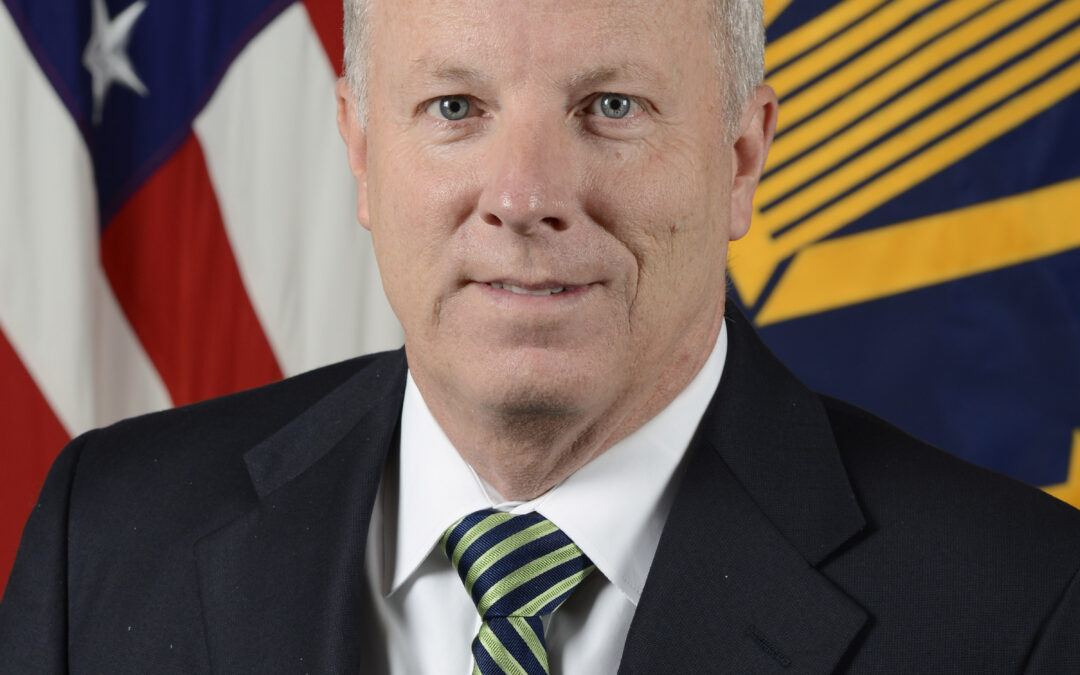What’s New: Mr. Kevin Mulvihill has recently been named the Department of Defense Deputy Chief Information Officer for Command, Control, & Communications.
Why It’s Important:
- Within the Department of Defense, the Chief Information Officer is “the principal staff assistant” for the Secretary of Defense for PNT issues. Mr. Mulvihill is the CIO’s deputy for PNT. As such he has huge responsibility and influence on such issues for the Department.
- Since United States government PNT policies and issues are directed by a committee co-chaired by the Department of Defense and the Department of Transportation Mr. Mulvihill also exercises a huge amount of influence on the nation’s direction on PNT issues.
What Else to Know:
- Mr. Mulvihill is responsible for seven major issue areas for the CIO and Department of Defense:
- Spectrum
- Communications systems and networks
- C2 and coalition information sharing capabilities
- Position, Navigation and Timing (PNT)
- Tactical Network Management
- Waveform Management, and
- Enterprise Mobility.
- The DOD CIO has a Principal Deputy, and four other Deputies. As we count all the primary duties, we see at least 15 major policy areas and responsibilities.

Kevin Mulvihill is a member of the Senior Executive Service, and the Deputy Chief Information Officer for Command, Control, and Communications (C3), Office of the Secretary of Defense, Chief Information Officer. He provides strategic direction, policy guidance, and oversight to enable the Department to effectively define, prioritize, acquire, govern, manage, and implement C3 capabilities in support of DoD operations. As DCIO, Mr. Mulvihill provides policy and guidance to execute Principle Staff Assistant responsibilities for: spectrum; communications systems and networks; C2 and coalition information sharing capabilities; Position, Navigation and Timing (PNT); Tactical Network Management; Waveform Management; and Enterprise Mobility. He leads teams responsible for the horizontal and vertical integration of operational level C2 and strategic command, control and communications, supporting joint and coalition concepts of operations.
Prior to his current assignment, Mr. Mulvihill led modernization efforts for DoD Satellite Communications, data links and tactical communication capabilities in support of warfighter needs for the DoD CIO.
Additionally, Mr. Mulvihill served as the Net-Centric Capability Portfolio Manager, Secretary of the Air Force, Office of Chief Information Officer (CIO) Headquarters Air Force, Pentagon, Washington, DC., where he directed integration efforts for all net-centric Air Force Space/C4ISR/Cyber warfighting capabilities. He provided wide-ranging leadership for managing and unifying the entire portfolio of Net-centric capabilities, Air Force-wide.
Mr. Mulvihill has held a variety of leadership positions in civilian and military arenas, focusing primarily on operations and requirements planning of DoD C2 systems at the tactical, operational, and strategic level of warfare. He began his government service career upon graduation from Lewis University in Joliet, Illinois, where he earned a Bachelor of Science Degree with Honors in Aviation Maintenance Management. He was commissioned and served in the United States Air Force in a variety of operational and staff positions, commanding an E-3 Sentry squadron and leading coalition Airborne Early Warning (AEW) operations. A combat veteran from Operation Desert Shield and Storm, he also commanded combat deployments for Operation Southern Watch, Operation Enduring and Iraqi Freedom, and conducted continuous 24/7 AEW air patrols after the events of 9/11 for Operation Noble Eagle from Tinker AFB OK. He started his military career in 1985 as part of the Peace Shield Program supporting the RSAF AEW in Riyadh, Saudi Arabia, and completed his final operational tour as Director, Cheyenne Mountain Command Center in 2009.
Kevin Mulvihill was awarded a Masters of Public Administration, from the University of Oklahoma, Norman, Oklahoma. His professional education includes graduating from Air Force Fighter Weapons School, Nellis AFB, Las Vegas, Nevada; U.S. Army Command and General Staff College, Fort Leavenworth, Kansas; Air War College, Maxwell AFB, Alabama; Joint Forces Staff College, Norfolk, Virginia; and National Security Studies Seminar 8, Canadian Forces College, Toronto, Ontario Canada, APEX 48 and Harvard Kennedy School for Senior Executives in National and International Security Program (NIS) program.


